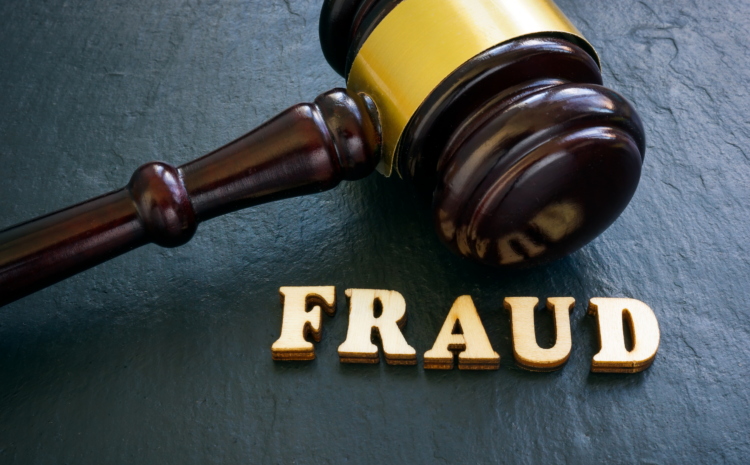
Do you have unpaid taxes, or are you worried about what the IRS might do if you fall behind on your tax obligations? One of the most serious steps the IRS can take is to freeze your bank account. This measure can catch you by surprise and cause immediate financial distress.
Keep in mind that the IRS does not need to file suit against you in Court in order to take money from you. Notwithstanding, the IRS will often send you several notices of its impending moves against you, and give you opportunities to stop address the collection process.
Remember, if you’re in trouble with the IRS or need help resolving tax problems, a New York tax attorney at Thorgood Law Firm in New York is ready to assist.
What Does It Mean When the IRS Freezes Your Account?
When the IRS freezes your account, they have effectively issued a notice of levy to your bank. That notice instructs the bank to hold (or “freeze”) the funds you have on deposit. After a short waiting period—often 21 days—the bank will be required to send the money to the IRS unless the issue is resolved.
This harsh action is typically a last resort. The IRS usually takes it if you have unpaid taxes and you have not responded to multiple notices or collection efforts. A freeze can happen on personal checking or savings accounts, and it can also occur on business accounts if you owe payroll or other business taxes.
How Does a Frozen Account Affect You?
A frozen account can create major problems in your life. Suddenly, you lose the ability to pay bills and write checks. Automatic withdrawals might bounce, leading to additional fees and penalties. Plus, you can no longer withdraw money to meet everyday expenses.

Why Does the IRS Take Such a Drastic Step?
The IRS generally resorts to a bank account freeze after other collection methods have not worked. By the time the IRS issues a levy, they have usually sent repeated notices, including a “Final Notice of Intent to Levy.” If you ignore these notices or fail to make arrangements to pay your debt, the government can decide to freeze your funds to collect what you owe.
The IRS sees tax debts as serious obligations, and if they believe you are avoiding payment, they’ll use strong tools—like freezing your account or placing a lien on your property—to make sure they get what is owed.
Are Co-Depositors Affected?
If you share a joint bank account with someone else—such as a spouse, family member, or business partner—then the freeze can affect them too. The IRS typically notifies all co-depositors, giving them a chance to state how much of the money truly belongs to them. If there’s a real disagreement about who owns the funds, the bank may hold the contested portion until the ownership questions are resolved in court.
The Supreme Court clarified in United States v. Nat’l Bank of Commerce, 472 U.S. 713 that co-depositors must have an opportunity to assert their ownership interests. If you are a co-depositor, you should act quickly to show proof of ownership (like bank records or deposit slips) so you aren’t unfairly penalized for someone else’s tax debt.
Can You Challenge the Freeze?
Challenging a freeze isn’t easy because of laws like the Anti-Injunction Act, which generally prevents courts from stopping IRS tax collection. However, there are certain exceptions. In Gallo v. United States, Dep’t of Treasury, IRS, 950 F. Supp. 1246, a taxpayer tried to argue that freezing their account caused financial ruin, but the court found that financial ruin alone wasn’t enough to stop the IRS from collecting taxes.
That said, if you can show the IRS is overstepping its authority or that you have no actual tax debt, you might have grounds to challenge the levy. You may also ask for a release or withdrawal of the levy if you can prove it creates an excessive hardship, although that can be a tough standard to meet.
What Happens to the Money After the Freeze?
Once your account is frozen, the bank usually waits around 21 days before transferring the funds to the IRS.
This waiting period gives you time to:
- Contact the IRS to make payment arrangements
- File an appeal if you believe the levy is improper
- Prove that the money doesn’t fully belong to you (for joint accounts)
- Seek a release of levy if you meet certain criteria
If you don’t act within that window, or if you’re unsuccessful in challenging the levy, the bank will hand over the amount the IRS says you owe (often plus a fee the bank charges for its efforts) —up to the limit of your balance at that time.
What Are the Consequences of Doing Nothing?
Failing to address a frozen account can have severe consequences. Over time, the IRS may take additional measures:
- Place a tax lien on your property, making it hard to sell or refinance
- Garnish your wages, taking a portion of your paycheck
- Evaluate other bank accounts or assets they can levy
- Possibly open the door to further legal actions, such as criminal tax investigations, if they suspect fraud or willful evasion
In short, ignoring the problem will not make it go away. Tax problems don’t get better with age. Your best bet is to respond proactively to any IRS notices.
What Are Your Options to Dispute or Resolve the Levy?
Below are some key strategies to handle an IRS bank levy:
- Contact the IRS Immediately: Sometimes, you can arrange a payment plan or ask about Currently Not Collectible status if you’re facing severe financial hardship.
- File an Appeal: If you think the IRS acted unfairly, you might qualify for a Collection Due Process (CDP) hearing, where you can argue your case.
- Prove Ownership: If you’re a co-depositor and the money isn’t actually yours, gather documents to show why the levy shouldn’t apply.
- Request a Levy Release: You can argue that freezing your account causes serious hardship, but you’ll need proof.
- Pay the Tax: If possible, paying what you owe (or at least a portion of it) can sometimes lead the IRS to release or reduce the levy.
Each option has pros and cons, and what’s best depends on your personal financial situation.

How Can a New York Tax Attorney Help You?
Many people try to fix IRS issues on their own and find themselves overwhelmed by legal documents and strict deadlines. A New York tax attorney can guide you through this process by:
- Reviewing your tax records to understand the real amount owed (sometimes the IRS’s numbers are off).
- Communicating with the IRS on your behalf, possibly negotiating a settlement or installment agreement.
- Representing you in appeals or court if needed.
- Making sure you understand your rights and options at every step.
Having the right legal advisor can ease the stress and improve your odds of a fair resolution.
What If You Need More Time to Pay Your Tax Debt?
If you can’t pay your entire debt immediately, the IRS might let you set up an installment agreement—where you make monthly payments—or even consider an Offer in Compromise, which can lower your total debt if you show you can’t afford the full amount. These processes can be complicated, but they offer a chance to avoid or lift levies and keep your bank account from freezing in the first place.
Why Choose Thorgood Law Firm in New York?
At Thorgood Law Firm in New York, we have over 25 years of experience helping individuals and businesses resolve serious IRS and New York State tax problems.
Our practice areas include:
- Criminal Tax
- Payroll Tax
- Unfiled Tax Returns
- Liens, Levies & Wage Garnishments
- Audits
- Penalty Abatements
- Installment Payments
- Offers in Compromise
- Innocent Spouse Relief
- Sales Tax
We know that dealing with the IRS can be intimidating, especially when your bank account is on the line. We’ll help you navigate the legal system, negotiate with the IRS, and work toward a resolution that protects your interests. Our New York tax attorneys treat each case with personalized care, aiming to relieve you of the stress that comes with tax issues.
Call Thorgood Law Firm to Unfreeze Your Account and Protect Your Rights
A frozen account can derail your finances and add a mountain of stress to your life. If you find yourself in this position or are worried it might happen soon, take action now. Call Thorgood Law Firm in New York at (212) 490-0704 or email info@thorgoodlaw.com to speak with a dedicated New York tax attorney about your situation.
We’ve been freeing clients from their tax problems for over 25 years, and we’re here to help you, too. Don’t let a bank account freeze or a tax levy ruin your financial health—reach out today and put our experience to work for you.






